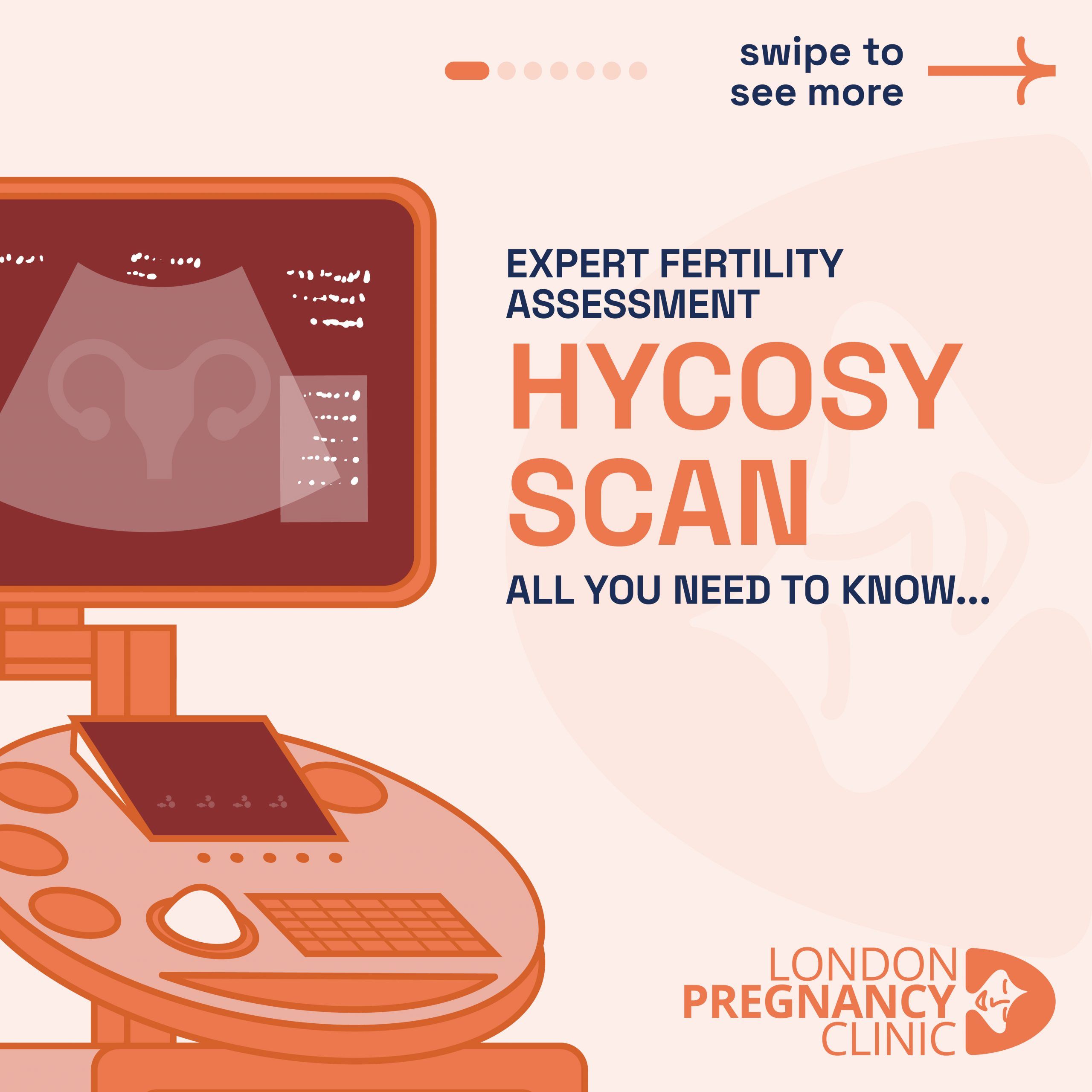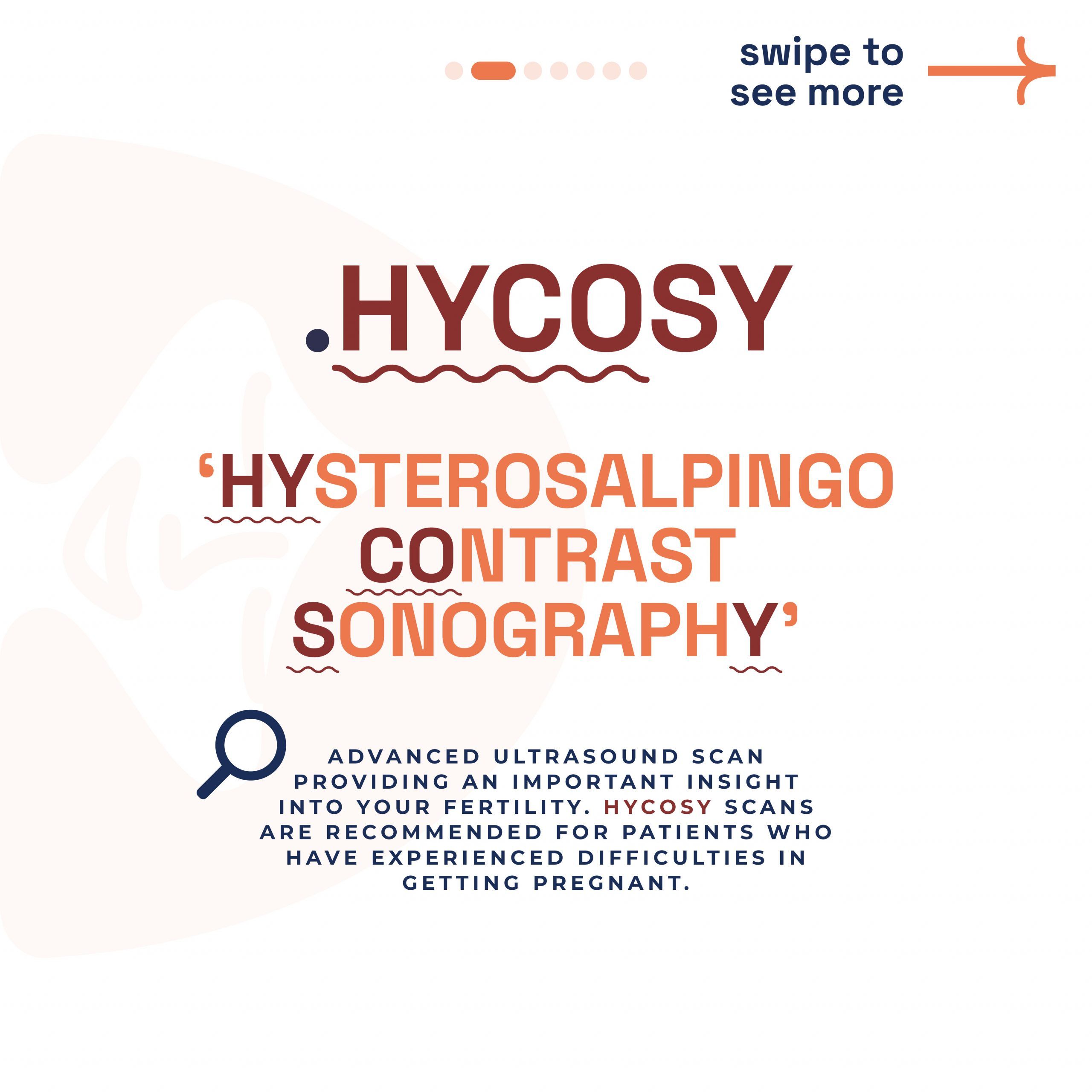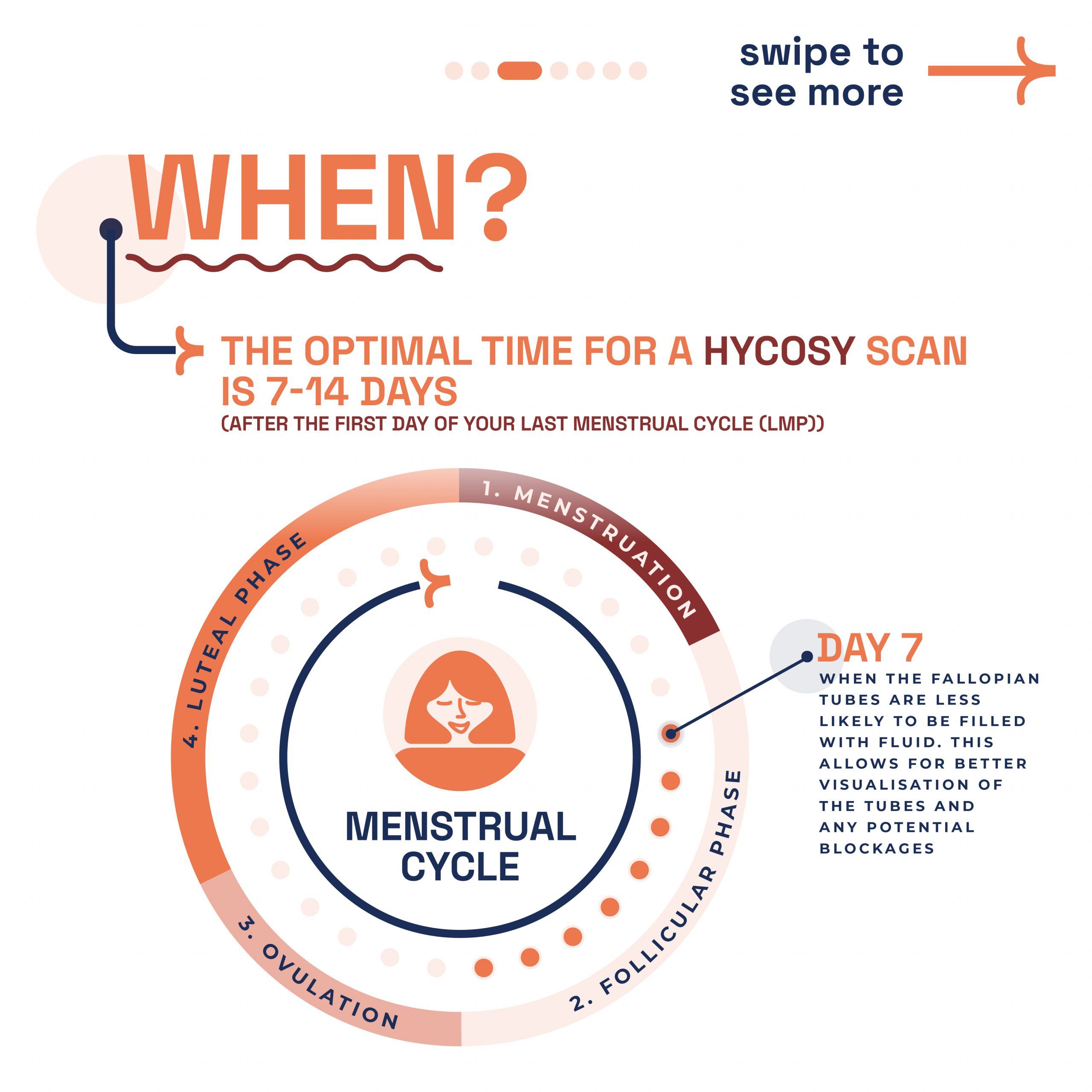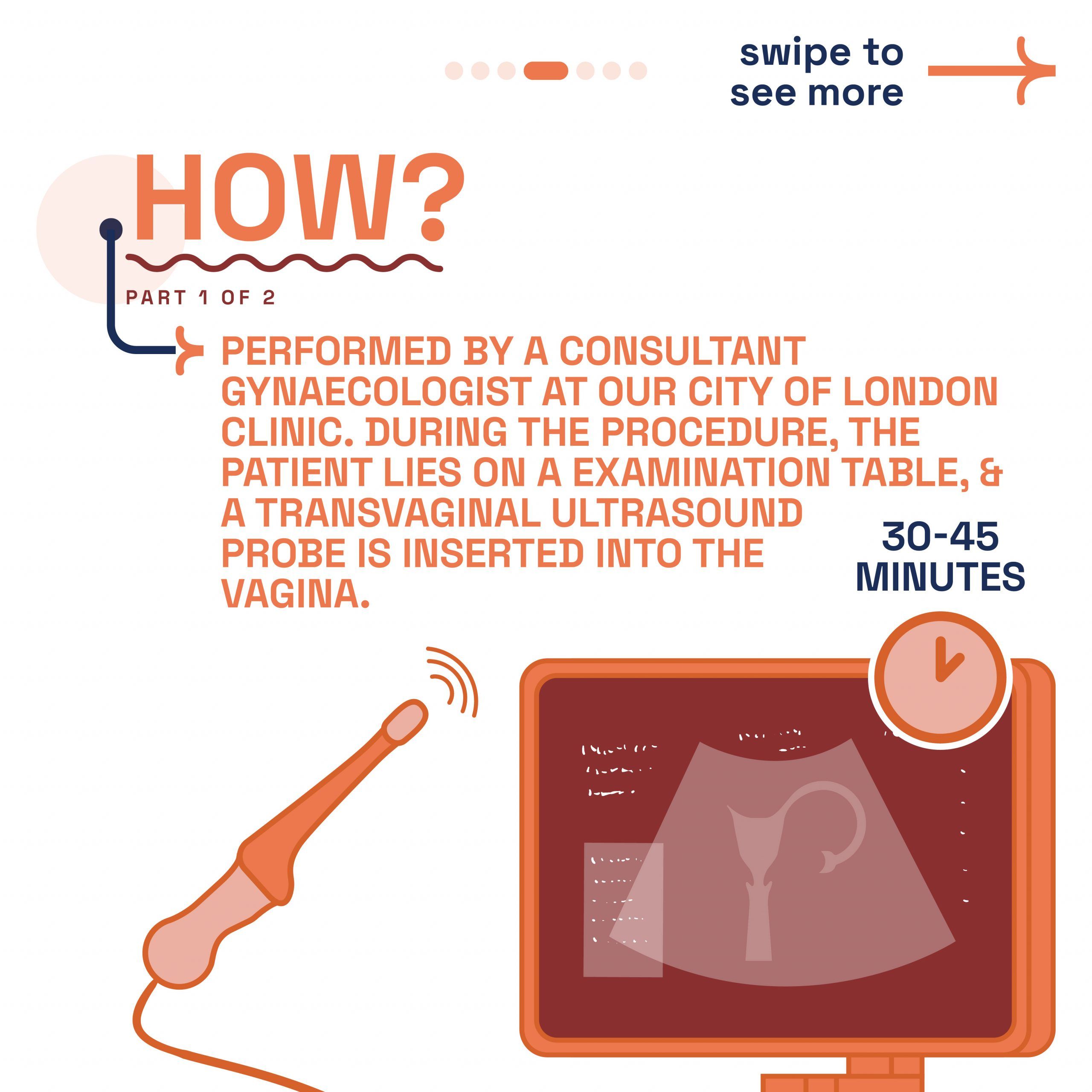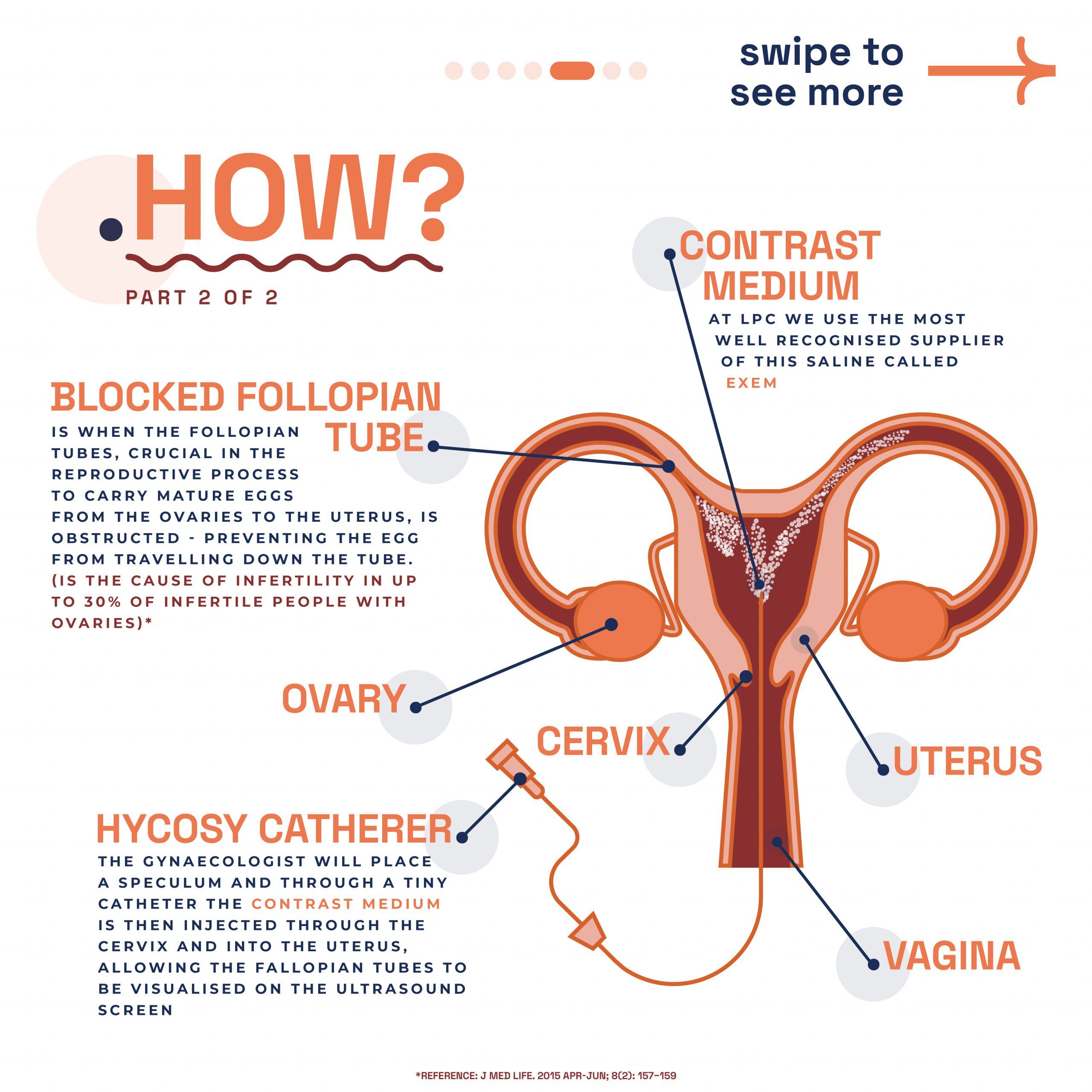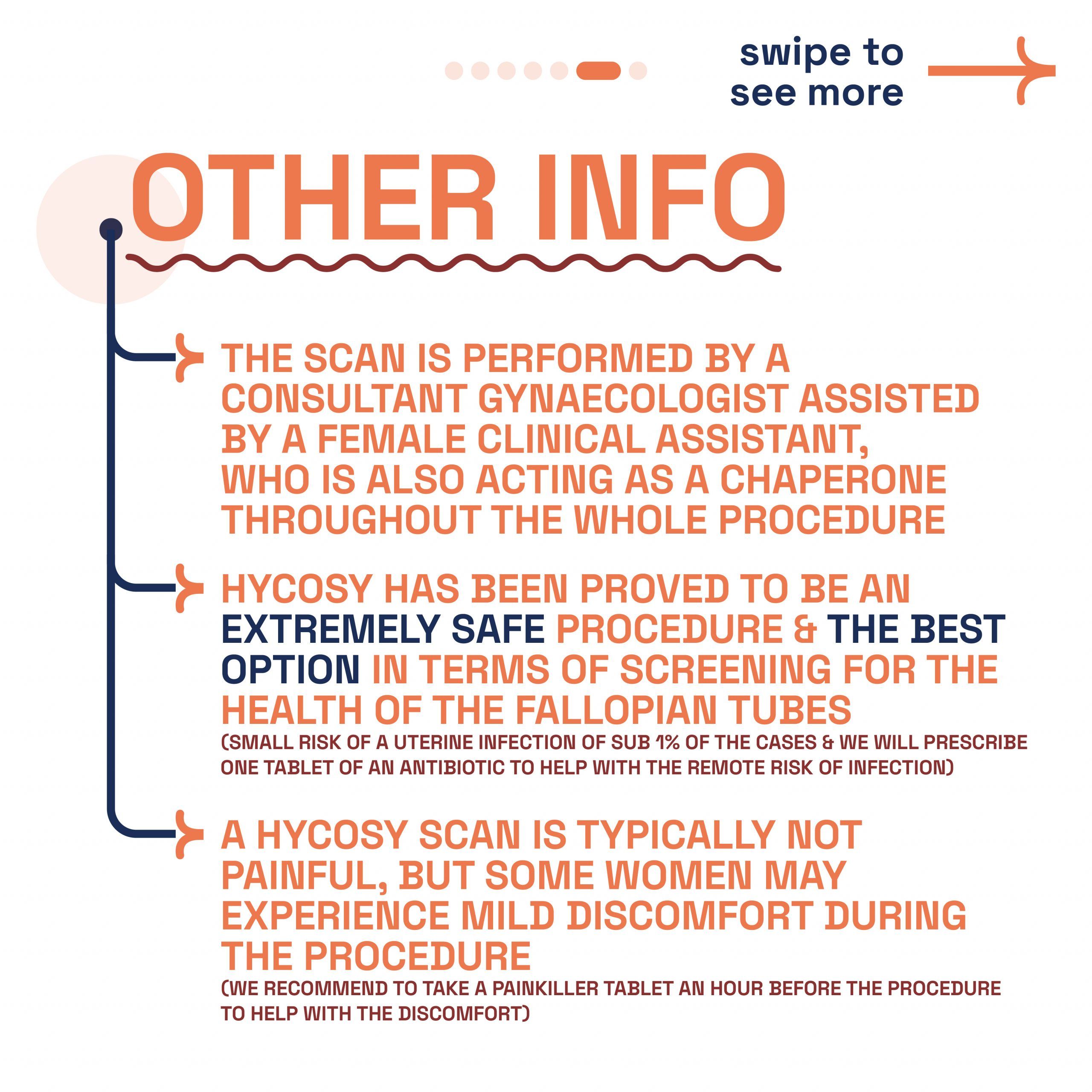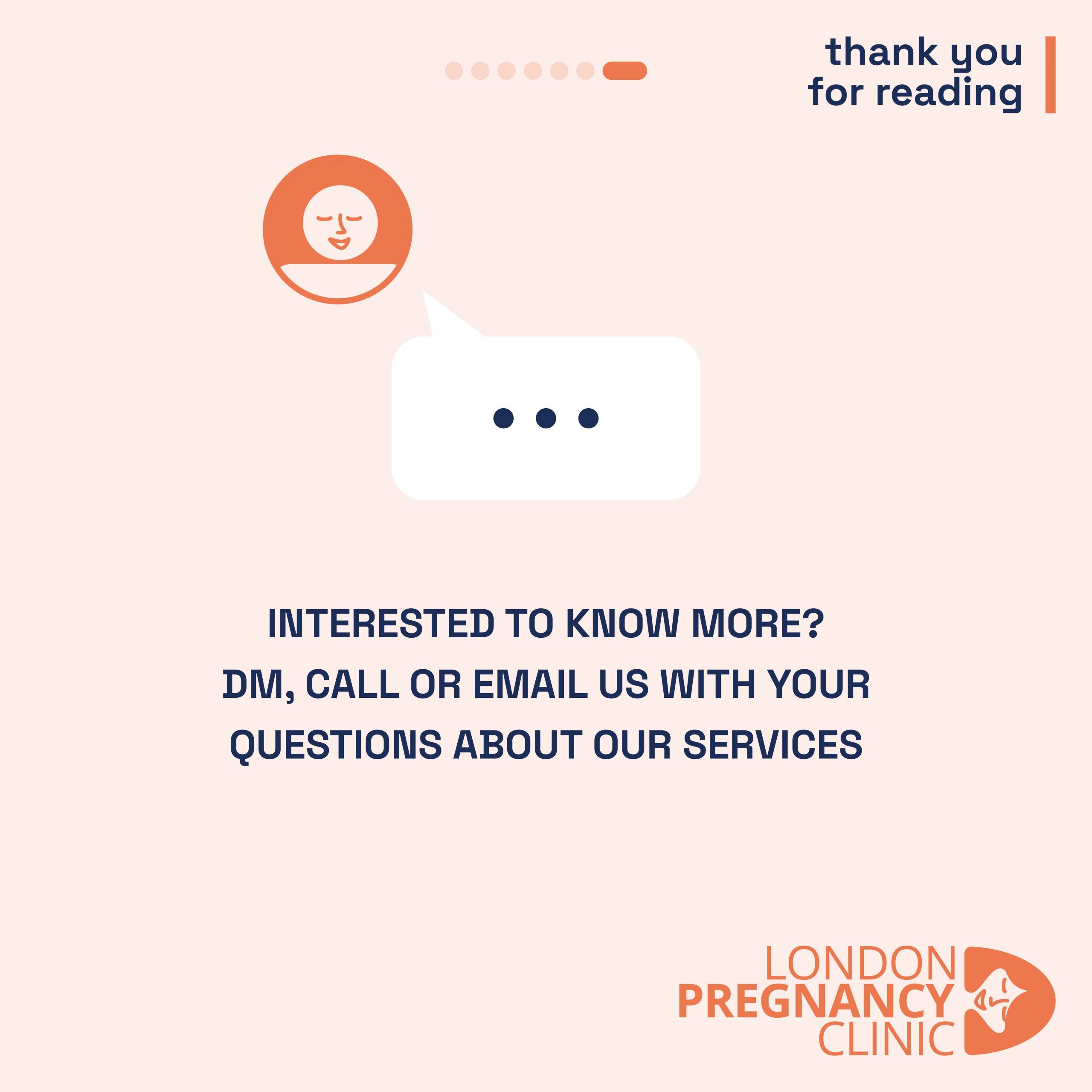Expert HyCoSy Scan for Fertility Assessment in London
Advanced ultrasound scan to examine the fallopian tubes, uterus and ovaries providing an important insight into your fertility

HyCoSy, or ‘hysterosalpingo contrast sonography‘
Our expert Consultant Gynaecologists specialise in reproductive medicine and fertility assessment. HyCoSy scans are recommended for patients who have experienced difficulties in getting pregnant.
This is a relatively pain free procedure which can be performed in the first 2 weeks of your regular 28-day cycle once the heavy bleeding has subsided. During the procedure, our clinician will insert a small amount of sterile fluid into the uterus which acts as a contrast medium and allows a thorough examination of the reproductive system.
Advanced fertility assessment at London Pregnancy Clinic
HyCoSy scans (Hysterosalpingo Contrast Sonography) is a medical procedure that uses ultrasound and a contrast medium to visualise the fallopian tubes and surrounding tissues. The test is performed to assess the anatomy of the female reproductive system, specifically the fallopian tubes, which are crucial for a healthy pregnancy.
Choose London Pregnancy Clinic for your HyCoSy Scan in London:
-
We use the latest ultrasound equipment from GE – Voluson E10 at its BT20 configuration
-
We are experts in fertility and reproductive medicine with over 30 years of experience
-
5* rated service on Doctify, TrustPilot and Google
-
Same day, evening and weekend appointments
-
Report, referral and images from the scan are available immediately after the scan on our secure cloud system
The HyCoSy Scan explained
A HyCoSy scan typically takes 30 to 45 minutes and is performed by a Consultant Gynaecologist at our City of London clinic. During the procedure, the patient lies on a examination table, and a transvaginal ultrasound probe is inserted into the vagina. The ultrasound probe emits high-frequency sound waves that produce images of the pelvic organs.
The Gynaecologist will place a speculum and through a tiny catheter the contrast medium is then injected through the cervix and into the uterus, allowing the fallopian tubes to be visualised on the ultrasound screen. The contrast medium fills the tubes and makes them visible, enabling the clinician to assess their shape, size, and fluid levels.
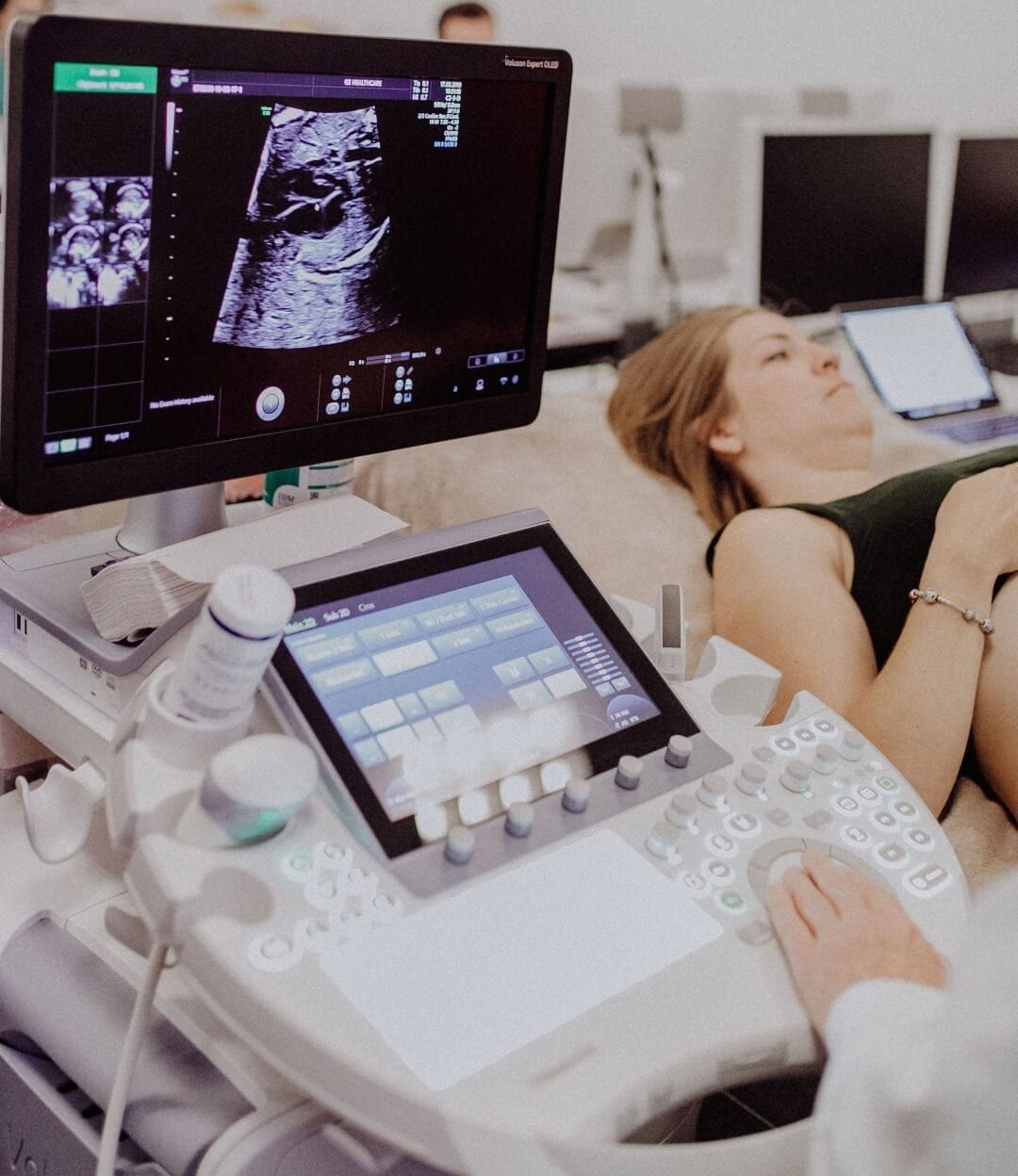
HyCoSy scan at London Pregnancy Clinic
A HyCoSy scan is typically performed during the menstrual cycle, ideally between days 7 and 14, when the fallopian tubes are less likely to be filled with fluid. This allows for better visualization of the tubes and any potential blockages. Your doctor will be able to determine the best time for you to have the scan based on your menstrual cycle and any other relevant factors.
A HyCoSy scan is usually performed when there is a concern about the structure of the reproductive system, particularly the uterus and fallopian tubes. Some common indications for a HyCoSy scan include:
-
Infertility: To check for blockages or abnormalities in the fallopian tubes that could be affecting fertility.
-
Recurrent miscarriages: To evaluate the uterus and fallopian tubes for any structural abnormalities that could be causing repeated pregnancy loss.
-
Assessing tubal patency: To determine if the fallopian tubes are open and functioning properly.
-
Pre-IVF evaluation: To assess the structure of the reproductive system before undergoing in vitro fertilization (IVF).
-
Abnormal uterine bleeding: To evaluate the uterus for any structural abnormalities that could be causing abnormal bleeding.
Your doctor will be able to determine if a HyCoSy scan is indicated for your individual case based on your medical history, symptoms, and any other relevant factors.
A HyCoSy scan is typically not painful, but some women may experience mild discomfort during the procedure. The test involves inserting a small, flexible tube through the cervix into the uterus and injecting a harmless saline solution. Some women may experience cramping or pressure during the procedure, but it should not be extremely painful. If you have concerns about the discomfort, it’s best to talk to your doctor before the test who may recommend taking a painkiller such as 2 tablets of paracetamol or 2 tablets of ibuprofen at home 1 hour prior to procedure to help with pain.
The timing of when you can try to conceive after a HyCoSy scan depends on several factors, including your individual health status, the reason for the scan, and the results of the test. In most cases, there is no need to wait after a HyCoSy scan before trying to conceive. Your doctor will be able to provide you with specific instructions and guidance based on your individual circumstances. If there were any issues identified during the test, your doctor may recommend additional treatment or follow-up tests before trying to conceive.
Scheduling a HyCoSy (Hysterosalpingo-Contrast-Sonography) scan during your menstrual cycle is generally best done in the first half, typically between days 5 and 12. This timing provides the most accurate results and minimises discomfort. However, the scan can still be performed during your period once the heavy bleeding has subsided, allowing for minimal bleeding that won’t interfere with the procedure.
It is advisable to avoid booking the scan during heavy menstrual bleeding to ensure clearer visibility and reduce the risk of complications. For personalised advice and to discuss the best timing for your HyCoSy scan, you can book a pre-HyCoSy telephone consultation for £200 to discuss the procedure in detail with a clinician.
Yes, it is generally recommended to take a pregnancy test before undergoing a HyCoSy (Hysterosalpingo-Contrast-Sonography) scan. This precaution ensures that you are not pregnant, as the procedure involves using a contrast agent and ultrasound, which could potentially harm an early pregnancy. Confirming that you are not pregnant helps to avoid any risks associated with the scan.
Most clinics will require a negative pregnancy test result before scheduling the HyCoSy scan, especially if you are of childbearing age and there is a possibility of pregnancy. The best time to perform this test is shortly before your scheduled scan to ensure the most accurate and current result.
For further details and to discuss the specific requirements of your procedure, please consult your healthcare provider or the clinic performing the scan. They can provide tailored advice based on your individual health needs and circumstances.
HSG (Hysterosalpingogram) is a diagnostic test used to evaluate the uterus and fallopian tubes. During an HSG, a dye is injected into the uterus through the cervix and X-ray images are taken to visualize the structure of the uterus and fallopian tubes.
HyCoSy (Hysterosalpingo-contrast-sonography) is an alternative to HSG, which uses ultrasound instead of X-rays. Some of the pros of HyCoSy compared to HSG include:
-
Non-invasive: HyCoSy is a non-invasive test that does not involve exposing the body to radiation.
-
Real-time images: HyCoSy produces real-time images, allowing for a more thorough evaluation of the reproductive system.
-
No need for X-ray facilities: HyCoSy can be performed in a standard ultrasound room, whereas HSG requires access to X-ray facilities.
-
More comfortable: Many women find HyCoSy to be more comfortable than HSG, which can be painful for some.
Our doctors will be able to determine which test is best for you based on your individual circumstances, including your medical history, symptoms, and other relevant factors.
During a HyCoSy (Hysterosalpingo-contrast-sonography) procedure, a saline solution is typically used to fill the uterus and fallopian tubes to enhance visualization on the ultrasound. The saline solution is harmless and is usually not absorbed into the body. The solution helps to highlight any blockages or abnormalities in the reproductive system, which can then be detected using the ultrasound images. Your doctor will be able to provide more specific information about the solution used for your individual HyCoSy procedure. At London Pregnancy Clinic we use the most well recognised supplier of this saline called ExEm.
A HyCoSy (Hysterosalpingo-Contrast-Sonography) scan is a valuable diagnostic tool for assessing the patency of the fallopian tubes and the uterine cavity. However, there are specific situations where individuals should avoid undergoing this procedure.
-
Pregnancy: If there is any possibility of being pregnant, a HyCoSy scan should be avoided. The contrast agent used in the procedure could potentially harm an early pregnancy. It is recommended to take a pregnancy test to confirm that you are not pregnant before the scan.
-
Active Pelvic Infection: Women with an active pelvic infection, such as pelvic inflammatory disease (PID), should not undergo a HyCoSy scan. The introduction of a contrast agent can exacerbate the infection and lead to further complications.
-
Heavy Menstrual Bleeding: It is advisable to avoid scheduling the scan during heavy menstrual bleeding, as it can obscure the visibility of the uterine cavity and fallopian tubes, making the results less accurate. The best time for the scan is typically between days 5 to 12 of the menstrual cycle.
-
Severe Allergies to Contrast Agents: If you have known severe allergies to the contrast agents used in the HyCoSy scan, you should avoid this procedure. Discuss any allergies with your healthcare provider to explore alternative diagnostic options.
-
Recent Uterine or Pelvic Surgery: If you have recently undergone surgery involving the uterus or pelvic area, it is advisable to wait until full recovery before having a HyCoSy scan. Recent surgical sites may be more prone to complications during the procedure.
For personalised advice and to determine if a HyCoSy scan is suitable for you, consult your healthcare provider or the clinic performing the scan. They can provide guidance based on your individual health needs and circumstances.
The fallopian tubes are a pair of tubes in the female reproductive system that connect the ovaries to the uterus. They play a crucial role in the reproductive process by carrying the mature eggs from the ovaries to the uterus, where they can be fertilized by sperm.
The fallopian tubes are lined with tiny hair-like projections called cilia that help to move the eggs along the tubes towards the uterus. If an egg is fertilized by a sperm, it will typically implant in the lining of the uterus. If the fertilization occurs in the fallopian tubes, it can lead to a condition called an ectopic pregnancy, which is a medical emergency.
Problems with the fallopian tubes, such as blockages or damage, can make it difficult for a woman to become pregnant. HyCoSy (Hysterosalpingo-contrast-sonography) is one diagnostic test that can be used to evaluate the fallopian tubes.
Yes, ultrasound is generally considered safe for medical examinations. Ultrasound uses high-frequency sound waves to produce images of the inside of the body, and it does not use ionizing radiation, making it a safe and non-invasive option for many diagnostic tests.
Ultrasound has been widely used in medical practice for several decades and has a well-established safety record. There is no evidence that ultrasound causes any long-term harm to the body.
HyCoSy has been proved to be an extremely safe procedure and the best option in terms of screening for the health of the fallopian tubes. The procedure does carry a small risk of a uterine infection of sub 1% of the cases. As a precautionary measure, you will be prescribed a small dose of an antibiotic – typically Azithromycin to avoid this outcome. The prescription cost is included in the price of this appointment.
At London Pregnancy Clinic we have the highest standards and strictest protocols when it comes to infection control. We use the appropriate sterile single-use equipment to minimise any possibility of infection.
At London Pregnancy Clinic, we are specialists in fertility and reproductive medicine. For a more round picture of your fertility profile, our gynaecologists could recommend other examinations such as AMH test, or our full fertility health assessment package.
At London Pregnancy Clinic the cost of a HyCoSy scan is £550 (+£30 surcharge on weekends or after 6pm) – this is all inclusive with no hidden fees. HyCoSy is a highly specialised procedure, and requires expertise in ultrasound and reproductive medicine, as well as a specific saline called ExEm.
The scan is performed by a Consultant Gynaecologist assisted by a female clinical assistant, who is also acting as a chaperone throughout the whole procedure. All of our clinical staff are trained chaperones.
DO YOU WANT TO KNOW MORE ABOUT OUR HYCOSY SCAN?

